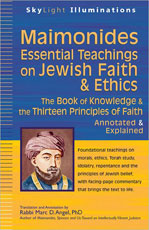• "A person should accustom himself to remain silent and should avoid speaking except on matters of wisdom or on things that are necessary for one's physical needs. Even in matters of Torah and wisdom, one's words should be few but their content great.
• "Silence is a fence around wisdom.* Therefore, a person should not respond quickly nor speak too much. He should teach his students calmly and pleasantly, without shouting and without being verbose.
• "It is forbidden for a person to engage in slick talk and flattery. One should not say one thing with the mouth while thinking something else in the heart, but the inner and outer selves should be attuned. That which is in one's heart should correspond to that which one says with the mouth. It is forbidden to deceive people. One should not invite a friend to join for a meal when one knows that the friend cannot accept. One should not offer presents when knowing that the other will not accept them. Even one word of flattery and deception is forbidden. Rather, a person should have a true tongue, an upright spirit, and a heart pure of all deception and fraud.
• "A person should be not overly mirthful and silly, and not overly sad and melancholy, but be happy. Our sages taught that one should receive others with a kindly countenance. A person should not be desirous of treasure, or be lazy and idle, but should be generous. One should diminish time devoted to labor so as to spend more time engaged in studying Torah. One should rejoice in what little is one's portion. A person should not be a quibbler, an envier, a luster after pleasure, or one who runs after honor."
* "Rabbi Akiva coined the phrase 'Silence is a fence around wisdom' (Pirkei Avot 3:13). A wise person maintains silence until he or she has something of value to say."
